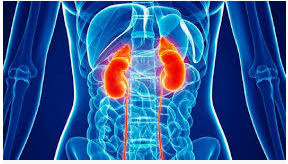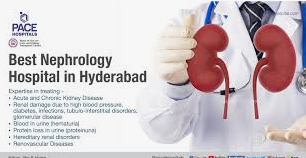Nephrology and Nephrology Education and its related Diseases
What is Nephrology?
Nephrology is the subspecialty of internal medicine that focuses on the diagnosis and treatment of kidney disease. Because the kidney performs many essential functions, nephrologists specialize in early kidney disease and managing the systemic consequences of kidney disease. While the prevention, detection, and treatment of early kidney disease is a big part of general internal medicine, nephrologists are often called upon to help and treat more complex or advanced kidney disease.

Also Read:
- Types of Water Pollution
- Climate Change- Environmental Challenge
- What is Ecology, its Types and Components
- Disaster Management, Prevention and Mitigation
Nephrologist’s Education and Training
To become a nephrologist, you must first undergo medical training. A four-year medical degree and bachelor’s degree are required first.
After graduating from medical school, you must complete a three-year residency focused on internal medicine. Residencies enable new physicians to undergo further training and education in a hospital setting and under the supervision of an experienced physician.

Once you earn a medical degree, you must complete a two-year degree in neuroscience. These relationships increase the knowledge and skills necessary for effectiveness. After the relationship, you can take a neuroscience exam.
Diseases Related to Nephrology
Nephrology focuses on the study of normal kidney function and disease. Kidney disease includes:
- Glomerular disease that affects the filtering function of the small kidney, glomerulus
- Diabetes mellitus such as protein leukemia, diabetes, blood clots, clots, crystals and more.
- Tubule interstitial disease affects the tubules involving the kidneys
- Kidney disease affects the vascular network
- Kidney failure that can be severe or chronic or chronic or chronic
- Kidney and liver stones
- Liver disease
- Testicular, bladder and bladder cancer

- Side effects of diseases such as diabetes and high blood pressure in the kidneys
- Acid to the head are not equal
- Hepatitis and nephropathy
- Sacred effects of drugs and toxins on semen
- Dialysis and long-term problems – surgery includes dialysis and laparoscopy
- Autoimmune diseases include autoimmune vacuities, lupus and others.
- Polycystic kidney disease of large cysts or bags in the kidneys affects their function – this is a genetic condition or genetic condition.
- Hydro nephrosis
Urine Tests
Urinalysis:
You can use a dipstick to test the pH of this urine or detect the presence of abnormal blood, glucose, protein, or bacteria.
Albumin/Creatinine ratio (ACR):
This urine test measures the amount of protein albumin in the urine. Urine albumin is a sign of kidney function.
24-hour Urine Collection:
This procedure uses a special bag to collect all urine produced within 24 hours. You can do more tests in this example.
Creatinine Clearance:
This is a dose of Creatinine from both the blood and the urine for 24 hours and is used to calculate the amount of Creatinine going in the urine from the blood.
Take care Precautions
A nephrologist is a type of physician who specializes in diseases and conditions affecting the kidneys. They work to treat conditions such as chronic kidney disease, kidney disease and kidney failure.
Your doctor may refer you to a nephrologist if you have a complicated or advanced kidney disease and need special care.
It is important to remember that if you are concerned about kidney problems, you should discuss them with your doctor and ask for a referral if necessary.
When to See Nephrologist?
Your doctor can prevent and treat the onset of kidney disease. However, sometimes there are no symptoms at this early stage or non-specific symptoms such as fatigue, drowsiness, and changes in urine volume.
Routine tests can check your kidney function, especially if you are at risk for kidney disease. This group includes:
Have high blood pressure
Diabetes mellitus
Heart disease
Family history of kidney disease

Tests can reveal signs of declining kidney function, such as decreased GFR levels or increased urine albumin. Your doctor may refer you to a nephrologist if your test results show rapid or permanent deterioration in kidney function.
Your doctor may refer you to a kidney specialist if you have any of the following conditions:
Advanced Chronic Kidney Disease
Your urine contains a lot of blood or protein
Recurrent kidney stones, for which you may be referred to a urologist
Blood pressure is still elevated, even if you take medication
Rare or hereditary kidney disease